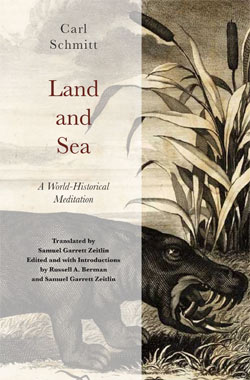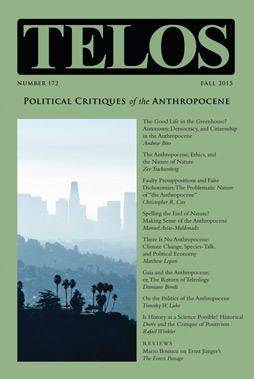This is the third in a series of posts that introduce the thought of historian Martin J. Sklar, as a prelude to a print symposium on his life and work in a future issue of Telos. For a fuller introduction, refer to the head note to the first TELOSscope post. Whereas the first two posts showcased the historian’s engagement with philosophy, this post highlights one of his important contributions to political economy. Sklar profoundly reinterprets the idea of a “mixed economy,” on the basis of the new concepts of “capitalist investment component” (CIC) and “socialist investment component” (SIC). In so doing, he also clarifies the meanings of capitalism and socialism as political-economic systems. Like conventional “mixed economy” theorists, Sklar came to believe that there would be a long historical period during which advanced societies would combine features of capitalism and features of socialism, with the later gaining gradual ascendancy. His understanding of which features belong to which system, however, upends conventional theories of government = socialism, “private” sector = capitalism.
|
Martin J. Sklar, who died in 2014, was a historian, left-wing activist, and original thinker. As a scholar/journalist-activist, he founded Studies on the Left, co-founded Socialist Revolution and In These Times, and was a founding member of The Historical Society. As a historian, he originated the influential concepts of “corporate liberalism” and “disaccumulation” and shaped the thinking of historians of the Progressive Era, the Jefferson–Hamilton divide, Lincoln’s revolutionary role in ending slavery, the sources and consequences of U.S. imperialism—and more. This article argues that after more than two centuries, our system of justice is no longer functioning as intended by its founders. I argue that this breakdown can be ultimately traced to a philosophical dilemma at the heart of American civilization: the assumption that economic self-interest can by itself sustain ethical care for a common good. In treating economic freedom as a moral absolute, the American right has misconstrued the practical purpose of freedom and undermined justice and equality for all. In contrast to the ahistorical claim of libertarians that economic freedom should be treated as a moral value, the goal of the founders of the United States was very concrete: enabling most citizens to get basic economic needs met in peace and security. Free and open elections and a system of checks and balances would motivate the naturally more powerful to manage their own passions in ways that contributed to a common good. By contrast, in unchecked political systems that arose by the struggle for dominance among the powerful few, the de facto rulers lacked any motive to act in ways that were consistent with the interests of the average citizen. As Thrasymachus claims in Plato’s Republic, they habitually wrote laws that benefited themselves at the expense of everyone else. Telos Press Publishing is pleased to announce that Carl Schmitt’s Land and Sea: A World-Historical Meditation is now available for purchase. Order your copy today in our online store.
Translated by Samuel Garrett Zeitlin Originally published in 1942, at the height of the Second World War, Land and Sea: A World-Historical Meditation recounts Carl Schmitt’s view of world history “as a history of the battle of sea powers against land powers and of land powers against sea powers.” Schmitt here unfolds his view of world history from the Peloponnesian War to European colonial expansion to the birth pangs of capitalism, while polemically setting Nazi Germany as a continental land power against Britain and the United States as its maritime enemies. In Land and Sea, Schmitt offers his interpretations of the rise of Venice, piracy, “corsair capitalism,” the spatial revolution of European colonial expansion, the rise of the British empire, and his readings of thinkers as diverse as Seneca, Shakespeare, Herman Melville, and Benjamin Disraeli. This new and authorized edition from Telos Press Publishing, translated by Samuel Garrett Zeitlin and edited by Russell A. Berman and Samuel Garrett Zeitlin, includes extensive textual annotations that compare critical variations between the original 1942 edition of Land and Sea and the subsequent editions published in 1954 and 1981. |
||||
|
Telos Press Publishing · PO Box 811 · Candor, NY 13743 · Phone: 212-228-6479 Privacy Policy · Data Protection Copyright © 2024 Telos Press Publishing · All Rights Reserved |
||||









